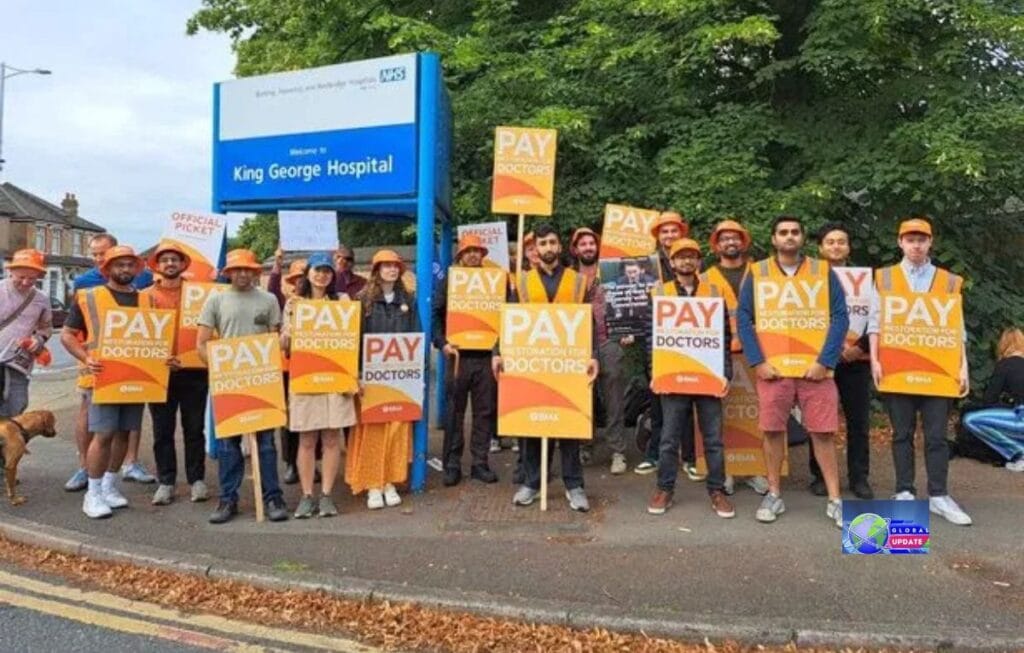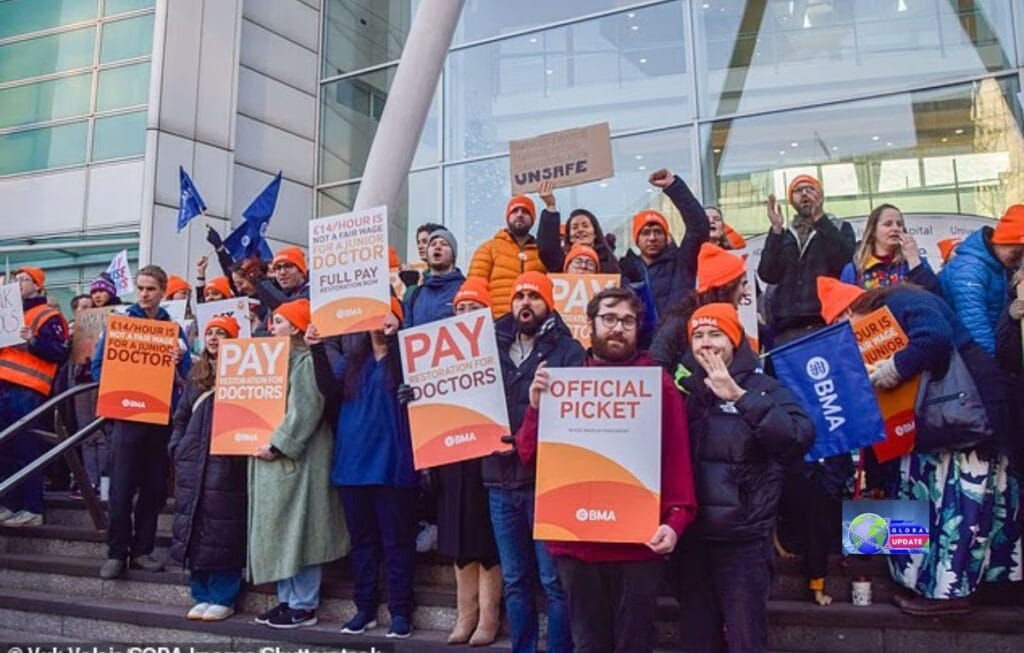The British Medical Association (BMA) has announced that resident doctors in England will undertake a five-day strike beginning at 7 am on 14 November and ending at 7 am on 19 November 2025.
Why the Strike? Pay Cuts, Stalled Career Progression & Staffing Bottlenecks
The union says the action is a response to the government’s failure to offer a credible plan on jobs, pay, and training.
The union argues that the strike decision is a response to the government’s inability to provide a credible plan on jobs, pay, and training.
Government Response: “Preposterous” & “Last Thing the NHS Needs”
Health Secretary Wes Streeting described the strike decision as “preposterous,” arguing that doctors have already received a 28.9% pay increase over the past three years and that further rises are not feasible this year.
He claimed the BMA’s action is obstructing a deal aimed at improving conditions.

Potential impact: NHS Under Pressure Ahead of Winter Surge
Hospital chiefs and NHS providers warn that this five-day walkout comes at a critical time, amid high patient demand, rising winter pressures, and a backlog of over 7.4 million patients waiting.
The strike will deepen delays and disrupt both elective and routine care.
What’s Next: Negotiations on a Knife-Edge
Both sides say they remain open to talks, but the dispute centres on fundamental issues such as staffing, training capacity, and restoring pay to keep pace with inflation.
If a credible offer doesn’t surface soon, the BMA has hinted at the possibility of more strikes.
Resident doctors in England will strike again next month—the 13th time since 2023—a decision NHS bosses have stated is “the last option the NHS needs.”
Hospital chiefs predicted that the stoppage would make it harder for the NHS to manage the increase in winter viruses and hamper its efforts to tackle the 7.4 million waiting list backlog.

The British Medical Association (BMA) and Wes Streeting, the health secretary, blamed each other for the five-day strike. Streeting said on Thursday that the strike was a response to his offering only “vague promises” after the union’s “reasonable” demands on pay and career progression.
But the health secretary accused the BMA of making a “preposterous” decision and indulging in “reckless posturing” and “unnecessary strikes” that would harm patients.
In the ongoing conflict between resident physicians and the government in England, this impending strike will be a crucial turning point with long-term effects on staff morale and the provision of healthcare services.



